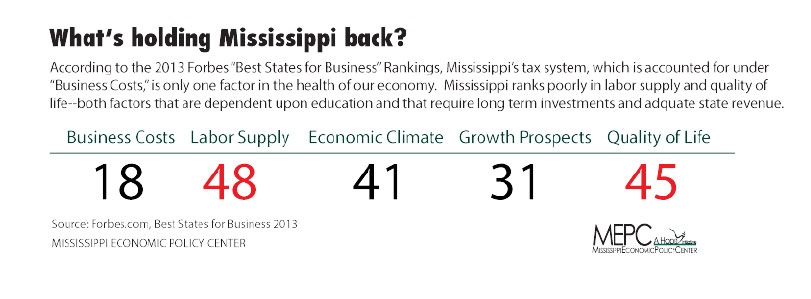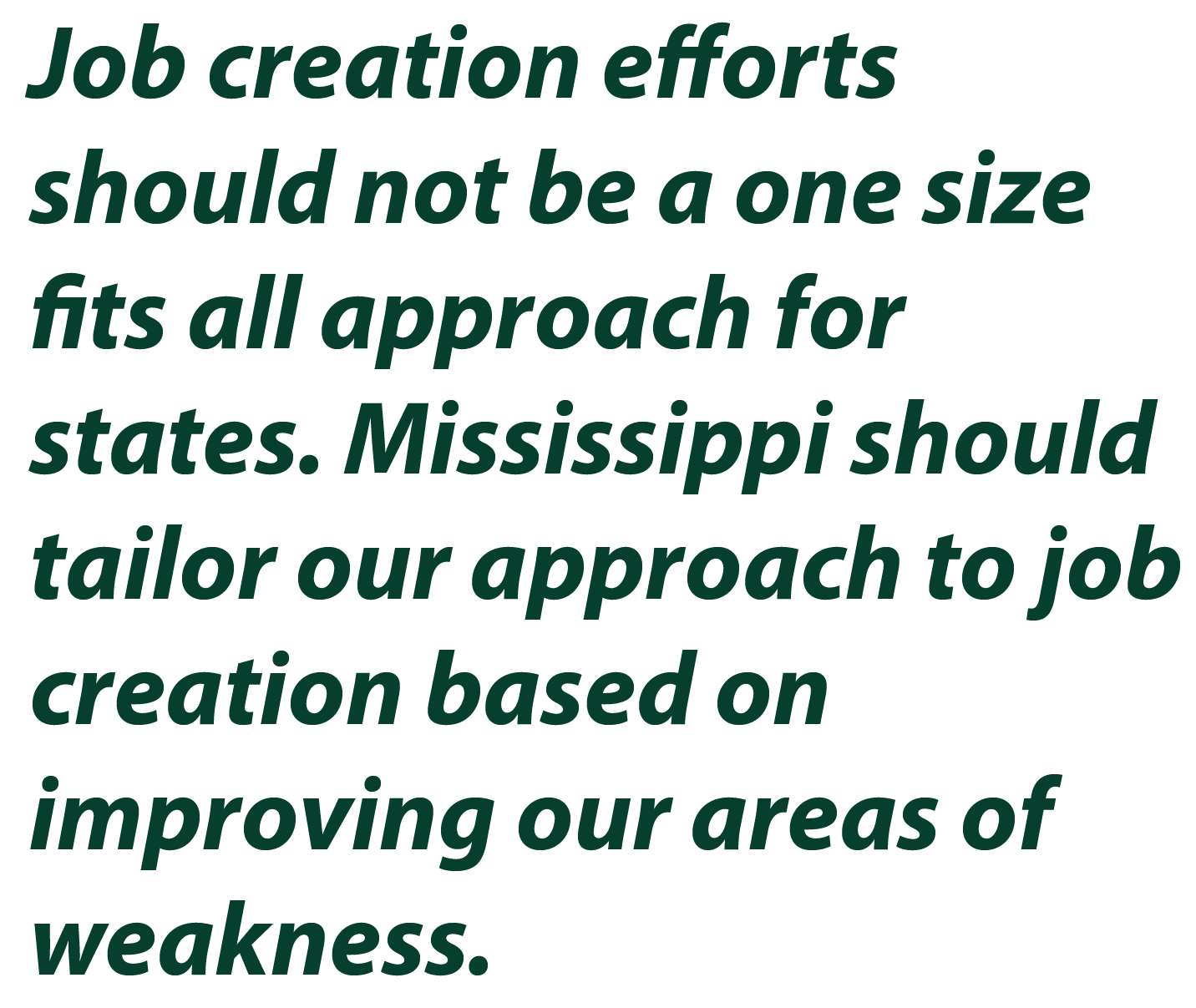States are “racing to the bottom” to try to attract large manufacturers through targeted tax deals for specific companies as well as lowering overall corporate and personal income tax rates. However, taxes often make up a very small portion of a corporation’s costs, not enough to be the singular thing on which location decisions are based. Job creation efforts should not be a one size fits all approach for states. Mississippi should tailor our approach to job creation based on improving our areas of weakness, like educational attainment.
Mississippi’s income taxes are not high relative to other states. Mississippi’s personal income tax ranks in the bottom five among states with an income tax (in income taxes as a percent of personal income) and in the bottom half of states on the corporate income tax. Also, among tax sources, Mississippi is much more reliant on the sales tax than the income tax. In Mississippi, sales and use tax revenues make up 43% of our state revenue, while individual income taxes make up 33%.
In fact, this week, Standard and Poor’s Ratings Services released a study that found that Mississippi is among the top 10 states with the heaviest reliance on the sales tax. The S&P study looked at income inequality among states and found that it contributed to the slowing of state revenue growth, especially among states that rely heavily on the sales tax.
According to the study, income inequality reduces state revenue growth by limiting economic activity in general. In another report on income inequality released earlier this year, Standard and Poor’s points to the need for states to increase educational attainment as a means to combat income inequality.
Educational attainment is a key weakness in Mississippi’s economic competitiveness. It contributes to Mississippi’s high poverty levels and low quality of life. For instance, in the Forbes Best States for Business rankings, Mississippi ranked 49th. What pulled down our score? Our labor supply, which is based on educational attainment, and quality of life, which is based partly on K-12 and higher education and the health of our communities.

Whether we can improve these factors depends on having adequate state revenue and making long-term investments. Cutting taxes now would take us in the wrong direction for economic competitiveness and job creation.








